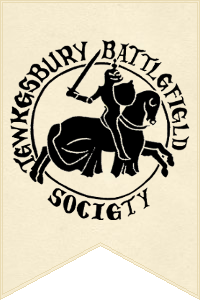April 28th 1471: Abingdon
The Gatehouse, Abington Abbey
One of the few remnants of the complex
Abingdon was just a stop along the Yorkist’s road towards the Lancastrian army. The town was home to a Benedictine monastery, where Edward would have been assured of a little comfort, and some of that may have spilled down to his army, maybe in the form of the monk’s medicinal skills and charitable works. The town was likely to have been unhappy about having to feed thousands of men at a time of the year when stores of food were at their lowest. They must also have been wary about indiscipline.
There was no rest for Edward’s secretaries. Letters were constantly being exchanged with supporters and well-wishers. Quite how messengers could locate the army so quickly is surprising. At Abingdon the letter which the Lancastrian Prince Edward wrote to the City of Coventry and they decided to forward on to King Edward was received. The contents must have been valued because he wrote straight back to them, as noted in the Mayor’s Leet Book ‘Item: received a letter from king Edward with a proclamation that was written at Abingdon the xxviij day of April’. The book only records receipt of the letter. We will never know the contents, and what the proclamation was.
As it was Sunday, and as there was a convenient Abbey church, the King would have heard mass, as would his soldiers, before they broke camp. The next stop was their first destination, the old Roman town of Cirencester.

